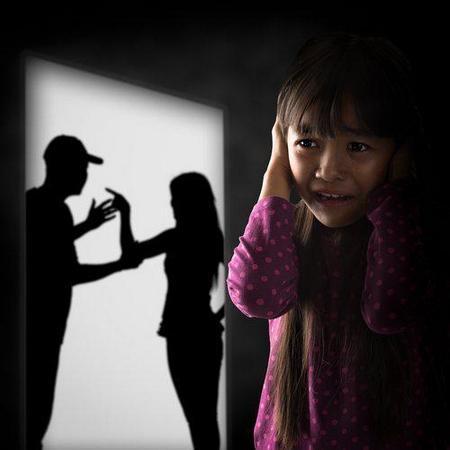Supreme Court Considers Broadening Hearsay Exceptions to Child Testimony
 In the United States, defendants who have been accused of domestic abuse are provided with the benefits of the law, regardless of whether they are guilty or innocent. Most times, victims of domestic abuse are not able to easily prove that they have been the subject of abuse by their perpetrator, either because they are scared of the abusers, they love the abusers (regardless of the treatment that they are receiving), and/or there is very little evidence that could be shown to the police. It becomes a he-said, she-said situation, which our criminal justice system has a hard time assessing and evaluating.
In the United States, defendants who have been accused of domestic abuse are provided with the benefits of the law, regardless of whether they are guilty or innocent. Most times, victims of domestic abuse are not able to easily prove that they have been the subject of abuse by their perpetrator, either because they are scared of the abusers, they love the abusers (regardless of the treatment that they are receiving), and/or there is very little evidence that could be shown to the police. It becomes a he-said, she-said situation, which our criminal justice system has a hard time assessing and evaluating.
Hearsay Evidence Rules
In court, when oral or written statements are brought in as evidence, the law of “hearsay” governs the admissibility of the statements. Hearsay is any out-of-court oral or written statement that is brought in to assert the truth of the matter that is at issue. Except for some outlined exceptions, hearsay is generally not admissible as truth, but could be brought in for another purpose, such as showing that the person had a bias or had received notice, regardless of whether the information held within the statement is true or not.
Difficulty to Assert Domestic Violence Claims
Because of the difficulty of bringing in statements that are known as hearsay into a courtroom, it can be hard to assert a case against a perpetrator of domestic violence when the evidence is largely based on personal testimony that occurred outside the courtroom. The Supreme Court, however, is attempting to provide greater rights to victims of domestic violence by broadening the exceptions served by the hearsay law. Largely, these statements would serve to provide greater opportunities for children to be able to come to teachers and other reporters of domestic abuse and have their statements introduced as evidence in a criminal proceeding against their abuser.
The Confrontation Clause
The Confrontation Clause is part of the reason for having the hearsay rule in effect in evidence rules. It permits that, except for foul play or other enumerated exceptions, every defendant has the right to confront their accuser and question the validity of the statements that the accuser is charging against the defendant. Children are treated as a special class because they are less likely to be able to assert themselves, especially when they may not understand the harshness of the proceedings, and/or are scared of their abusers.
The Supreme Court Review
The Supreme Court has decided to take on this issue this season by determining the limits that can be imposed on the type of evidence that can be brought forth in child abuse cases. These limits would permit the introduction of children’s statements to their teachers, therapists, or school counselors, alleging any type of abuse, and would allow this to be used as evidence in charging the defendant.
The Pros/Cons of the Supreme Court Broadening Exception to Child Testimony
Many opponents of this change believe that children’s testimony should not be used to charge a defendant because children are not reliable as witnesses. They are easily swayed by suggestion, can be easily intimidated, and/or are not able to fully understand the extent of their testimony or criminal proceedings. Advocates, however, believe that even if these are possible outcomes, protecting children is a significant public interest and additional safeguards could be drafted to limit any misconduct or mistake.
Experienced Family Law Attorneys in DuPage County
Domestic violence is a serious issue affecting many families nationwide and around the world. The family law attorneys at Mevorah & Giglio Law Offices can help advise you on your rights if you or your children are victims of domestic violence. Contact our experienced DuPage County family law attorneys today for a free and confidential consultation.
 English,
English,
 Spanish,
Spanish,
 Polish,
Polish,
 Urdu
Urdu












 Make a Payment
Make a Payment



